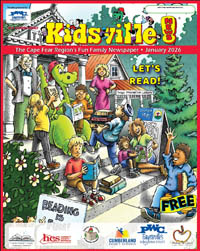
Throughout its 130-year history, film has been a universally beloved form of entertainment and a crystal clear lens by which to view society.
A film can be a window to another world, far away places, and an opportunity to see into the lives of others. In collaboration with The Arts Council of Fayetteville and Cumberland County and its Black Culture Experience, The North Carolina African Film Festival is coming to Fayetteville from Friday, Feb. 24 to Sunday, Feb. 26 at the Volta Space in Downtown Fayetteville.
The Black Culture Experience, which runs from February through March, is “a series of compelling programs selected by the Arts Council that educate, uplift and empower communities of color,” shared Christy McNeil, Director of Marketing for the Arts Council.
The festival focuses on filmmakers from Africa and the African Diaspora who bring stories from the continent to life in innovative, compelling ways. According to their website,
“The art of cinematic storytelling manifests through treasured tales of social issues, economic disparities, conflict resolutions and global inequalities faced by communities of African descent to learn from the past and visualize all the possibilities that advancement brings.”
Film festivals, at their core, are a celebration of art and an opportunity for audiences to experience stories that might go otherwise unseen. The idea of “connection,” using the past to inform the future, and closing cultural gaps are just a few of the festival’s aims since its debut in 2020.
This year’s films offer an exciting array of languages, settings and issues that are perhaps specific to African culture but speak to humanity as a whole.
Olive Nwosu, in a blend of Yoruban and English, explores the complexity of returning home after the death of a parent in her film “Egúngún.”
“Mmam Moeketsi,” directed by Reabetswe Moeti, tells the brutal true story of wage politics in South Africa. Other films on the docket deal with the fear and uncertainty of being undocumented, strained family relationships, and mental illness — topics that should resonate with audiences from every corner of the globe.
In addition to the film screening, festival-goers can attend artist-talk sessions, various workshops related to film and filmmaking, and several networking opportunities.
For aspiring filmmakers, the North Carolina African Film Festival offers a chance to see the fine machinery of filmmaking up close and an opportunity to learn the tricks of the trade.
The North Carolina African Film Festival offers the audience an intimate gaze into the lives of Black people as told by Black people. These aren’t stories about Africa from the distorted lens of Hollywood but an opportunity to walk hand in hand on the streets of Soweto or the villages of Nigeria with the people who call them “home.”
For more information about the festival and a full list of films visit https://www.ncafricanfilmfestival.com/. The Volta Space is located at 116 Person St.

 How to resolve AdBlock issue?
How to resolve AdBlock issue? 








